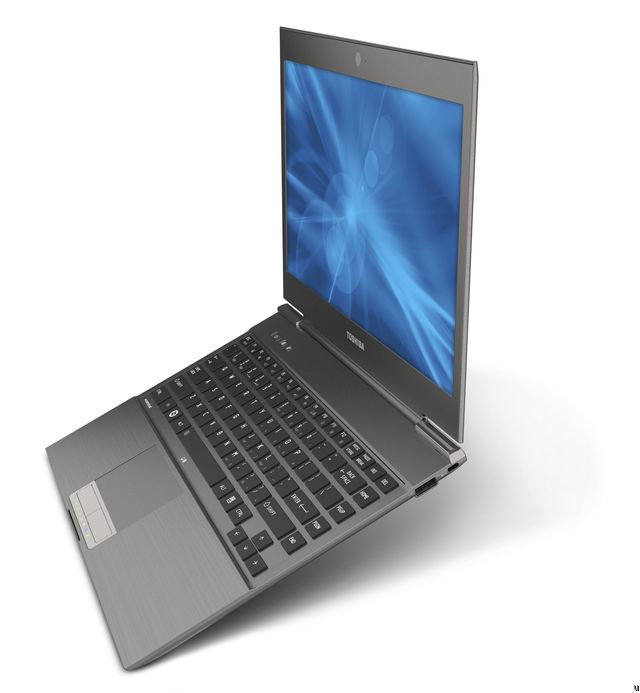 Toshiba has announced its Portege Z830 ultralight computer which is powered by a ultra low voltage (ULV) Intel Core processor that is at the heart of Intel’s Ultrabook platform. When compared to the previous thin and light from Toshiba, the Portege R830, the Portege Z830 is 20% lighter (2.5lbs) and 40% thinner. The Z830’s weight is comparable to the Macbook Air 11”, but it provides the comfort of a 13” computer. Amazing, isn’t it?
Toshiba has announced its Portege Z830 ultralight computer which is powered by a ultra low voltage (ULV) Intel Core processor that is at the heart of Intel’s Ultrabook platform. When compared to the previous thin and light from Toshiba, the Portege R830, the Portege Z830 is 20% lighter (2.5lbs) and 40% thinner. The Z830’s weight is comparable to the Macbook Air 11”, but it provides the comfort of a 13” computer. Amazing, isn’t it?
Despite its size, the Portege Z830 supports up to quad-core processors (Core i3-i7), 128GB of SSD storage and 6GB of DDR3 RAM. Given that the second generation of Intel Core processors have functions like hardware mpeg4 video encoding, a small computer like this one could outperform last year’s full-size laptops at video compression. I know… my Core i7 (gen1) Macbook Pro 15 is getting clobbered in video compression by new ultralights.
 The external design is as interesting as the inside components. The magnesium chassis is very thin, (especially the LED display) and the back-lit keyboard is also spill-resistant, which is a rare combination. Surprisingly, the audio is very respectable. In a quiet environment the volume is largely sufficient and we did not hear any sound distortion, even at maximum volume.
The external design is as interesting as the inside components. The magnesium chassis is very thin, (especially the LED display) and the back-lit keyboard is also spill-resistant, which is a rare combination. Surprisingly, the audio is very respectable. In a quiet environment the volume is largely sufficient and we did not hear any sound distortion, even at maximum volume.
Toshiba aims at providing 8 hours of battery life, which would be in line with what the Ultrabook reference design was built for. However, we will have to conduct an independent review to confirm this.
To entice users to save even more battery life, Toshiba uses its Hi-Speed Start technology which accelerates the boot and wake-up time. For example, when the user “shuts down”, Windows logs off, saves the state of the system at that moment before turning itself off. When the computer is turned on later, loading that state is much quicker than performing a standard boot sequence. The Toshiba Portege Z830 will be available in November 2011, and although there is no official pricing yet, Toshiba has told us that this was going to be a sub-$1000 system.
Filed in . Read more about Laptops, Toshiba and Ultrabooks.



